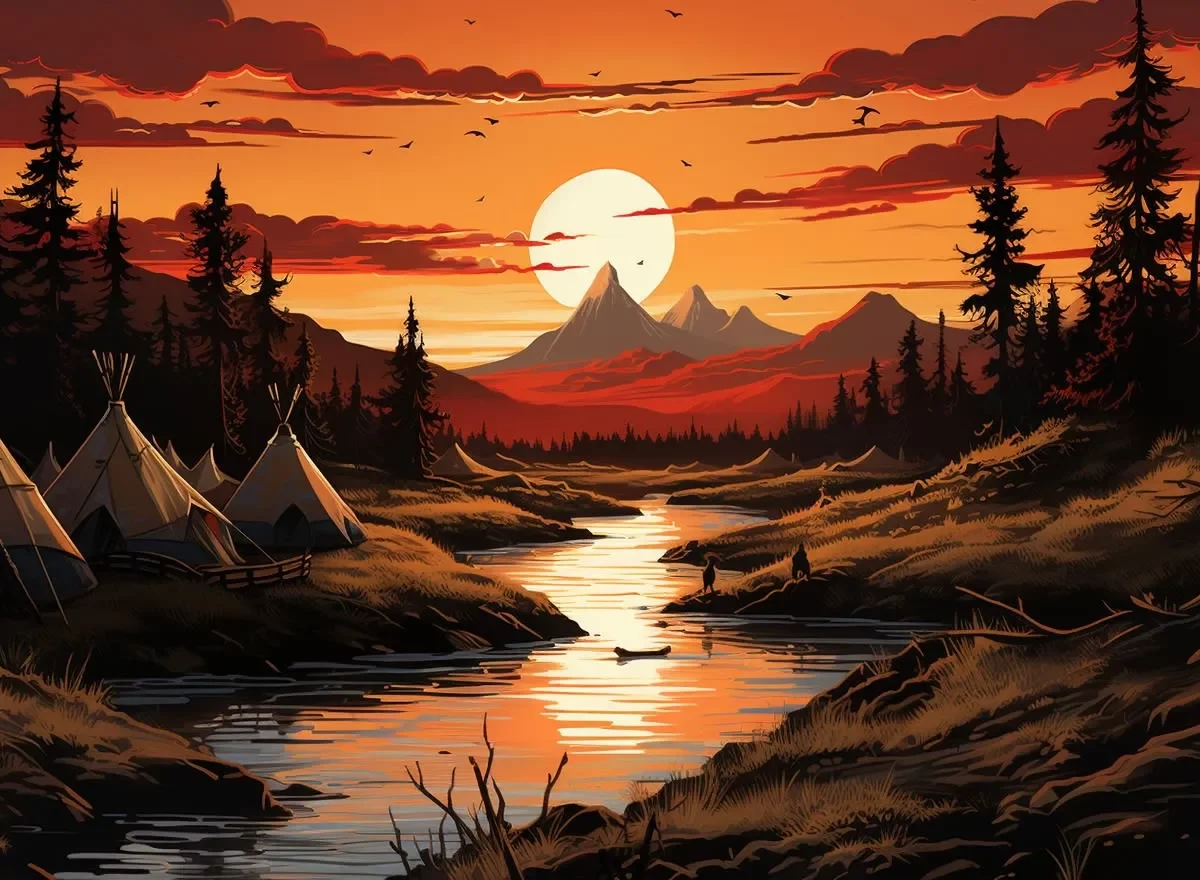Washington’s Native American Heritage: Tribes, Culture, and History

Coastal Tribes: People of the Salish Sea
Makah Tribe
The Makah Tribe is well-known for its historic whaling traditions, residing in Neah Bay. They have a museum showcasing their intricate art, including carved canoes and totem poles. The Makah have a significant relationship with the ocean and continue to practice sea hunting legally. The annual Makah Days festival, with traditional dances and feasts, reflects their maritime heritage.
Lummi Nation
Situated near Bellingham, the Lummi Nation is the third-largest tribe in Washington State. They have focused on preserving their language, cultural practices, and natural resources, including salmon. Lummi carvers are known for their remarkable totem poles and other wooden artworks. The Lummi Nation’s annual Stommish Water Festival features traditional boat races and is a must-see event.
Quinault Indian Nation
The Quinault Indian Nation, located on the Olympic Peninsula, plays a significant role in protecting and preserving the Quinault Rainforest. The tribe’s rich traditions include fishing, hunting, and carving. They also have programs for forest management, ensuring a balance with nature. Visitors can explore guided tours that reveal the tribe’s connection to the land.
Plateau Tribes: People of the Inland
Spokane Tribe
Named after the Spokane River, the Spokane Tribe has a proud history as fishers and gatherers. They are dedicated to preserving their Salish language and conduct youth programs to teach their traditions. Their lands offer unique geological features and fishing spots that the tribe cherishes. The annual powwow is a vibrant display of dance, music, and storytelling.
Yakama Nation
The Yakama Nation resides in the Yakima Valley and is one of the largest tribes in Washington State. Known for their rich agricultural practices, the Yakama have a vast heritage in fishing, hunting, and gathering. They also play a vital role in water rights and environmental protection in the region. The annual Treaty Days celebration includes ceremonies, parades, and rodeos, marking the signing of the 1855 treaty.
Colville Confederated Tribes
The Colville Confederated Tribes consist of 12 individual tribes that reside on the Colville Reservation. Their history and culture are rooted in fishing, gathering, and trading. The tribes work collectively to manage resources and promote education within their communities. The annual Nespelem Fourth of July Powwow is a highlight, with traditional dance, art, and a chance to savor authentic tribal cuisine.
Historical Sites and Museums
Museum of Glass
In Tacoma, the Museum of Glass showcases Native American artists and their innovative work with glass. This museum collaborates with local tribes, featuring exhibitions that honor tribal traditions. Educational programs and live demonstrations provide visitors a deeper understanding of the artistic process.
Burke Museum
Seattle’s Burke Museum holds a significant collection of Native American artifacts, providing deep insight into the historical and contemporary culture. It serves as an educational hub with interactive exhibits that facilitate learning about native tribes. Regular events and exhibitions engage the community with indigenous knowledge and craftsmanship.
Suquamish Museum
The Suquamish Museum in Suquamish offers interactive exhibits and guided tours, focusing on the Suquamish Tribe’s history and traditions. Its modern architecture is inspired by traditional winter dwellings, and it’s located near Chief Seattle’s gravesite. Community events and educational programs ensure a lively connection with the local heritage and culture.
Exploring Washington’s Native American heritage is a profound and enriching experience. Engaging with the tribes through festivals, museums, and tours allows visitors to understand the vibrant culture and history that shape the state’s identity. Whether learning about the traditional ways of the coastal tribes or delving into the art and agricultural practices of the inland tribes, Washington’s Native American communities offer a wealth of knowledge and inspiration for all who seek to connect with the land’s original inhabitants.
Your Answer For Storage in Washington is at Glacier West Self Storage
Immerse yourself in Washington’s rich Native American heritage while keeping your belongings secure with storage units in Washington. Whether you’re a history enthusiast or an avid traveler, Glacier West Storage offers safe and convenient storage solutions. Reserve your unit now or contact us to learn more!